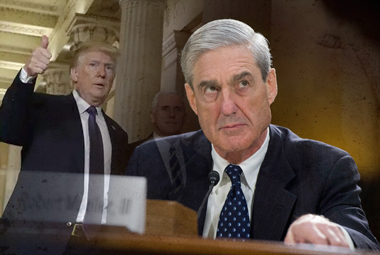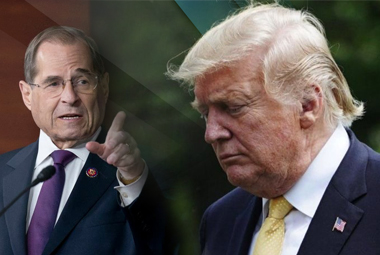Introduction
Very recently, I wrote about the betting prospects as relates President Trump’s impeachment, removal from office, winning the Republican nomination and winning the 2020 General Presidential Election here.
In that article, I also detailed how PredictIt.org can be used, as well as the calculations of the fees (for winning and/or cashing out) for both those depositing into PredictIt and those with money on the site already. I have written other, more similar, articles both here and over at LCB, so I welcome anyone to search for those or PM me if you would like links.
For those reasons, we’re not going to get into the math of the whole thing so much as my opinion that nothing has changed, except the case AGAINST Trump being removed from office looks a little bit stronger. Why a little bit? Well, because the case against was looking pretty strong already. The first thing that we are going to do is take a look at how the PreidctIt.org odds as of this writing compare to the recent article linked above:
| Proposition | This Writing | Previous Article |
|---|---|---|
| Impeached | Yes 0.13, No 0.87 | Yes 0.16, No 0.84 |
| President at End of 2019 | Yes 0.92, No 0.08 | Yes 0.90, No 0.10 |
| Complete First Term | Yes 0.83, No 0.17 | Yes, 0.85, No 0.15 |
Given the events of the last few months, the implied probability of Trump’s being impeached, which is still entirely too high, has dropped by 3%. The implied probability that he will be in office at the end of this year, which is still entirely too low, has risen 2% to 0.92 on the binary.
Remarkably, the implied probability that he will complete his first term has dropped 2% for reasons that are entirely beyond my comprehension. I believe there is a very good chance he will lose reelection, but I would be extremely surprised if that would cause him to resign with just over two months on the clock. I simply cannot fathom how, given the change in the first two options, that the third option listed above has changed in the opposite way. Non Sequitur---It does not follow.
That fact notwithstanding, given the recent Mueller testimony before two Congressional committees, let’s look at what we have learned about the investigation of the special counsel and subsequent report:
- The report does NOT exonerate the President.
- The report does not charge the President. (It can’t)
- The report does not suggest the President should be charged after leaving office.
- The report does NOT suggest the President be impeached/removed. (It can’t)
- The report suggests that Trump accepted Russian assistance.
- The report flatly states the Russians did, in fact, interfere in the 2016 election.
- The report flatly states that the Russian interference benefitted President Trump.
- The report does not flatly state that President Trump obstructed justice.
- The report states that written answers provided by Trump were unhelpful.
- The report states that Trump was not subpoenaed.
- Mueller states that Trump was not subpoenaed to expedite the end of the investigation.
With that, let’s take these on one at a time:
1.) The report does NOT exonerate the President.
-For those Democrats wishing for impeachment/removal, one point that they wished to hammer home was that the Mueller report did not exonerate the President of conspiracy with the Russians or obstruction of justice.

-To that point, while it may make a good soundbite, Mueller had decided a priori that Trump could not be charged in the first place given that he is a sitting President. The only way that Trump could be charged with any of these things is in the event he is impeached/removed, loses his reelection bid or serves two terms and is no longer President. In any case, Trump would have to NOT be a sitting President in order to face charges in the first place.
-To that extent, in order for the report to exonerate Trump, it would only be doing so in a future sense as of the time that he could be charged in the first place. In other words, there was merely insufficient evidence that Trump did not and could not have done those things of which some are accusing him. In other words, there is insufficient evidence to the extent that he would be exonerated if charged in the future. Naturally, that also means that it is impossible to conclude that he would be found guilty of anything, especially given the possibility that new information could come to light in the interim.
2.) The report does not charge the President. (It can’t)
-Again, Mueller’s a priori position was that a President cannot be charged in the first place until he is no longer President. Mueller would not speak to whether or not President Trump will be charged with anything when he is no longer President because Mueller will presumably not be the special counsel at that time, is no longer the special counsel as of now and would not be the one to charge him in the first place.
-For Mueller to say that Trump would be charged in the future would require him to be clairvoyant. The long and short of it is Mueller has no way of knowing that.
3.) The report does not suggest the President should be charged after leaving office.
-Again, Mueller is not clairvoyant. The conclusion is that there is insufficient evidence to exonerate the President, but at the same time, he cannot be charged whilst he sits in office. Mueller would presumably not be the one to bring any charges, so the only illumination that the report can give in this regard is that President Trump theoretically could be charged after leaving office, but not that he will be. If charged, President Trump could also be exonerated.
4.) The report does NOT suggest the President be impeached/removed. (It can’t)
-Neither the report nor Mueller himself makes any statements as relates the possibility of Trump being impeached and/or removed from office. Once again, that’s exclusively for Congress to decide and is in no way, shape or form the question that was posed to Mueller in his capacity as special investigator.
-There are certain aspects of the report that could theoretically be used, and certainly would be, in the event that any impeachment effort was made. However, the report itself does not directly speak to impeachment one way or another. Again, that’s not for Mueller to decide or officially opine on in any way whatsoever.

5.) The report suggests that Trump accepted Russian assistance.
-Not only does the report suggest this, but Trump has also suggested that he, “Would listen,” if negative information were to be offered vis-a-vis a future Presidential candidate. In the hearing, Mueller suggested that Trump may not realize that accepting foriegn, “Interference,” in any form could be a crime. That also makes the case of conspiracy a tough one (there is no crime of, “Collusion,” despite the buzzword, only conspiracy) because it would essentially require Trump to know that such acceptance of assistance is illegal in the first place.
6.) The report flatly states the Russians did, in fact, interfere in the 2016 election.
-Not only did the report suggest this, but this was one of the only points that Mueller made an effort to emphasize during the Congressional hearings. Essentially, he suggested that such influence is alarmingly easy to execute and continues to be easy to execute not only for the Russians, but also for any foriegn power that has such an interest. Essentially, this was the only area in which Mueller really spoke outside of the contents of the report.
7.) The report flatly states that the Russian interference benefitted President Trump.
-While the report states that the Russian interference benefitted President Trump, it also suggests that there may have been interference of other parties that could benefit Clinton. In short, the American election process is dangerously vulnerable to interference and continues to be; a point that Mueller would emphasize more than once.
8.) The report does not flatly state that President Trump obstructed justice.
-Again, such a statement would be beyond the scope of the report given the a priori assumption that Trump cannot be charged whilst he sits as President.
9.) The report states that written answers provided by Trump were unhelpful.
-The report does not state that President Trump directly and knowingly lied about anything, but it does state (and Mueller confirms) that President Trump was not particularly helpful in the investigation. (Why would he be?)
10.) The report states that Trump was not subpoenaed.
-The report states, and Mueller confirms, that no attempt was made to subpoena President Trump to answer to the special counsel.
11.) Mueller states that Trump was not subpoenaed to expedite the end of the investigation.
-When asked, Mueller stated that the prevailing interest was to get the investigation over with as expediently as possible and with as little cost as possible to the American public. This is backed up by the fact that the special investigation was, in fact, concluded faster and more cheaply than previous investigations of this kind.
-Mueller (likely correctly) also indicated that Trump would take any attempts to subpoena him into court, which would result in a lengthy court battle prior to Trump ever giving any testimony in the first place. In addition to increasing the cost to the American public, this would also significantly increase the cost of the investigation. Further, Mueller hinted that any subpoena, if successful, would not necessarily be likely to result in any further illuminating information anyway.
-While it was not directly stated by Mueller, even if President Trump were to perjure himself in any subpoenaed testimony, given the a priori that a sitting President could not be charged with a crime federally, such perjury could also not be charged until Trump is no longer in office.
The Bottom Line
The bottom line as relates the nature and information provided by the report, as well as the Mueller hearings (which were basically a restatement and summary of the report) is that there exists not much additional information that would lead to the conclusion that the President should be impeached.
To that end, especially given the divisiveness in American politics between the left and right that exists today, very few opinions are likely to be swayed amongst the American public. For the most part, Democrats will continue (and not even all that many of them) to believe that Trump should be impeached, whilst Republicans do not. For example:
The Washington Post cites a poll taken in conjunction with ABC news that would indicate that impeachment is only favored by 37% of Americans with 59% opposed. In other words, while it is presumably favored by the majority of Democrats, it is unpopular with the American population, at large. In fact, the percentage of those opposed to Impeachment vastly exceeds the percentage of Americans who approve of the job President Trump is doing as President.
What Should the Democrats Do?
My position on this matter remains the same, if the Democrats want Trump out of office, the best course of action is simply to try to remove him by way of beating him in the 2020 General Election. While we do not know who the Democratic candidate will be, we do know that Trump is a historically unpopular President. In fact, let’s take a look at the Presidential approval ratings vs. the percentage won in the popular vote for those running for reelection since 1980.
| Year | President | Approval Rating | Popular Vote | Vote % Relative to Approval |
|---|---|---|---|---|
| 1980 | Jimmy Carter | 45.5 | 41 | 90.11% |
| 1984 | Ronald Reagan | 52.8 | 58.8 | 113.63% |
| 1992 | George H. W. Bush | 60.9 | 37.4 | 61.41% |
| 1996 | Bill Clinton | 55.1 | 49.2 | 89.29% |
| 2004 | George W. Bush | 49.4 | 50.7 | 102.63% |
| 2012 | Barack Obama | 47.9 | 50.9 | 106.27% |
| 2020 | Donald Trump | 42.7 (Current)* | Unknown | Unknown |
*President Trump’s approval rating based on fivethirtyeight.com aggregate average.
Here’s what we can gather from this:
We see that most Presidential candidates receive a popular vote percentage that exceeds the average approval rating for their term(s) as President. In fact, 1992/1996 both stand out as outliers mostly due to the running of third-party candidate, Ross Perot, who locked up a meaningful percentage of the popular vote in both cases, most especially in 1992.
Barring those two years, Jimmy Carter is the only President with a career approval rating that exceeded the percentage of the popular vote received in the election year in question. Taking 1992 and 1996 out of account, the average increase in popular vote, as a percentage, is about 103%, which is moved by the very popular Ronald Reagan. Reagan also did not face meaningful opposition in his reelection bid. This extrapolation would put President Trump and an expected roughly 44% in the 2020 popular vote, which falls substantially short of the 46.1% he garnered in 2016.
While the sample size is admittedly quite limited, this leads to the conclusion that, barring a meaningful third-party candidate, (there is no indication that this will happen in 2020) or a historically popular Presidential candidate (again, no indication) that a Presidential candidate’s reelection approval rating represents a floor, rather than a ceiling.
All that does is tell us what we already know: There are voters out there who say something along the lines of, “You know what? I don’t necessarily like our current President, but I do like him a lot more than I like that other candidate.” That’s going to be really meaningful in the case of Trump, because if only those who approve of his performance vote for him, he will almost certainly lose. His relatively low percentage of the popular vote in 2016 already left him with quite a bit to overcome and resulted in the necessity for a nearly perfect Electoral College storm.

President Trump WILL NOT Be Removed from Office by the Senate
I’m not going to repeat myself on this one, so I refer anybody to the previous article, but I assert that there is nothing in the Mueller report, or anywhere else, that could ever lead to the two-thirds Senate vote that would be required to remove Trump from office. In other words, much like with Clinton, any impeachment effort would be largely symbolic.
Therefore, if the ultimate aim of Impeachment is to remove Trump from office, (which it should be if only it were viable--it isn’t) then that ultimate goal will absolutely not be realized. Therefore, here are what I think the results of any Impeachment proceedings would be:
-It fails, the Republican base is galvanized, the Democrats supporting Impeachment look extremely silly.
-It succeeds, Trump is not removed from office, the Republican base is galvanized, the Democrats voting for Impeachment look somewhat silly.
Trump will absolutely NOT be removed from office by the Senate, and even if he were, I’m not entirely sure that prohibits him from running in 2020 anyway. The Republican base would still be galvanized.
Who does Impeachment serve?
Essentially, it would only excite the further left Democratic base who wants President Trump to be impeached in the first place. This would NOT increase voter turnout; these people will turnout to vote against Trump regardless. It will not swing any voters away from Trump; the only people excited by the prospect of Impeachment would vote for a sentient toilet seat, if there were a sentient toilet seat and it could run for President, over President Trump in the first place.
If nothing else, all it does is lend credence to Trump’s suggestion that he has been subject to a Democratic, “Witch hunt,” galvanizes the Reublican base and perhaps results in a few potentially swing voters (or those leaning soft Democrat) to potentially view Trump as a sympathetic (!) figure.
For all of these reasons, aside from the fact that he MIGHT not have done anything worthy of Impeachment, Democrats should drop any Impeachment efforts immediately. Those who represent far left districts likely won’t, however, because it resonates with the extremely left base of voters.

Who Should the Democrats Nominate?
Joe Biden.
In my opinion, going with the perceived Moderate and relatively popular former Vice President, Joe Biden, is the no-brainer to end all no-brainers. While Bernie Sanders (the second place 2016 Democratic nomination finisher) is extremely beloved by those who are young and extremely Liberal, again, those individuals are going to vote for a Chia Pet over Donald Trump if given the opportunity. You don’t need them to vote FOR a candidate, you simply need them to vote AGAINST President Trump, which they certainly will.
While American politics, particularly in terms of economic policies, may lead as far to the left as would be supported by Bernie Sanders and his loyal followers; it simply does not seem as if the more moderate Democrats (and certainly not many Independents) are there just yet.
More than that, if Trump is to be portrayed as an extremely far right (he’s actually not, except on immigration) and out of touch possible racist, you’re really not going to do anything to lend to that perception by running a candidate who is even more of a political outlier than Trump himself! If Bernie Sanders (or a few others) were to win the Democratic nomination, Donald Trump actually becomes the, “Moderate,” which the Democrats should absolutely not want.
On the other hand, Joe Biden is well-liked, largely respected and well approved of. He has extensive Senatorial experience, is considered a strong diplomat and served as Vice President during a tenure that, if nothing else, has become more well-regarded since Obama left office. In 2018, Obama’s first retrospective job approval rating was 63%, according to Gallup.
Furthermore, I think one thing that Republicans could agree with me on is that Hillary Clinton was a historically unpopular candidate, only slightly more popular than Donald Trump himself. One way or another, President Trump will likely NOT enjoy the benefit of running against a historically unpopular candidate. Even when he did, he lost the popular vote by a couple of percentage points.

Two Other Polls
The other two PredictIt.org binary options I want to look at very briefly are the following:
Party to win 2020 Election: Democratic $0.55, Republican $0.48
These are actually two separate binary options as each represents its own YES/NO proposition. Personally, I think $0.55 way overvalues the Democrats and $0.48 slightly overvalues the Republicans...though it is difficult to make a distinction on the latter without knowing who the Democratic nominee will be. After considering fees for winning and cashout fees, I don’t think there is positive value in either of these two choices.
Will Trump be 2020 Republican Nominee: Yes $0.90, No $0.10
This is just ridiculously good value. Take 100%, subtract the probability that you think President Trump will no longer be alive by then (and I hope he is still alive by then) and that’s what I think the probability is that he will be the nominee. Were he not planning to run again, one would think he’d almost certainly have said so by now, and again, he will absolutely NOT be removed from office. This is especially good value if you already have money in PredictIt because you would have to pay the fees associated with cashing out anyway. Donald Trump is a mortal LOCK to be the 2020 Republican nominee.
Conclusion
With exception to the fact that some of the value has evaporated in the impeachment/removal binary options, nothing else has changed. Again, previous articles have explained on how to identify the value that you are actually going to get from a bet given your actual probability assumptions as well as any and all fees associated with getting your bets down.
I have identified increased value in the binary on YES President Trump will complete his first term for reasons beyond my comprehension. Again, with the value that had evaporated in other binaries, it should follow that value should have also been reduced in that one...and yet the value of the bet has increased since the last time we explored this.
Finally, I think Trump is a mortal lock (and if he were immortal, he’d be an immortal lock) to be the 2020 Republican nominee. Any notion to the contrary, barring death or an unexpected health issue, is just absurd.
Comments
Mortal lock - not familiar with that expression. Wonder where/how it originated?
I'm not sure how it originated, but apparently, I've been using it wrong...at least according to internet sources.
I always took it to mean, "As sure as you are going to die, this event will happen," hence, a mortal lock. That's actually why I used it in this case because I'm saying, "As long as Trump does not die, he will be the Republican nominee."
I did an online search, though, and it seems to say a, 'Mortal Lock,' is a bet that a person perceives as 100% that's really just a coin flip. That's also just according to Urban Dictionary and a YAHOO! answer, so not exactly reliable sources. I forget where I first heard (or perhaps saw) the expression, but I've always just taken it to mean that x proposition is as sure as death.
[q]I did an online search, though, and it seems to say a, 'Mortal Lock,' is a bet that a person perceives as 100% that's really just a coin flip.[/q]yes, I saw that too, and also want to dismiss it as some BS somebody came up with. At least we can say it does not mean that to everybody.



